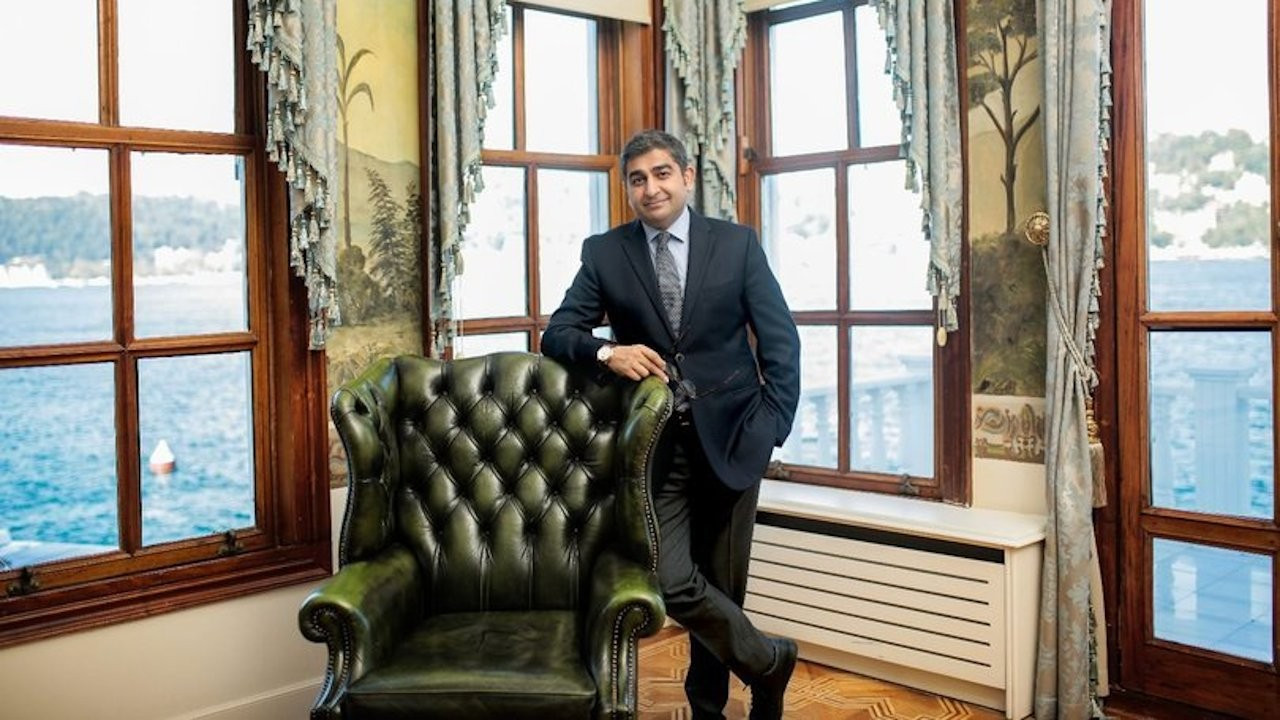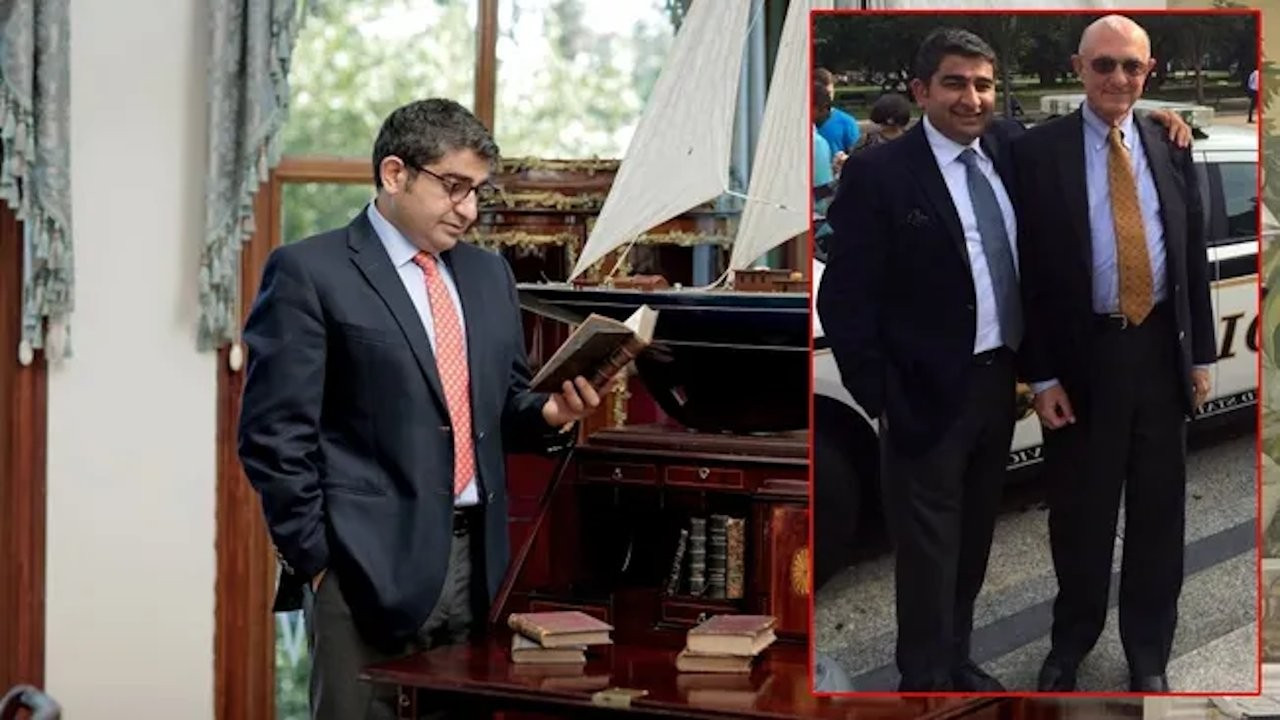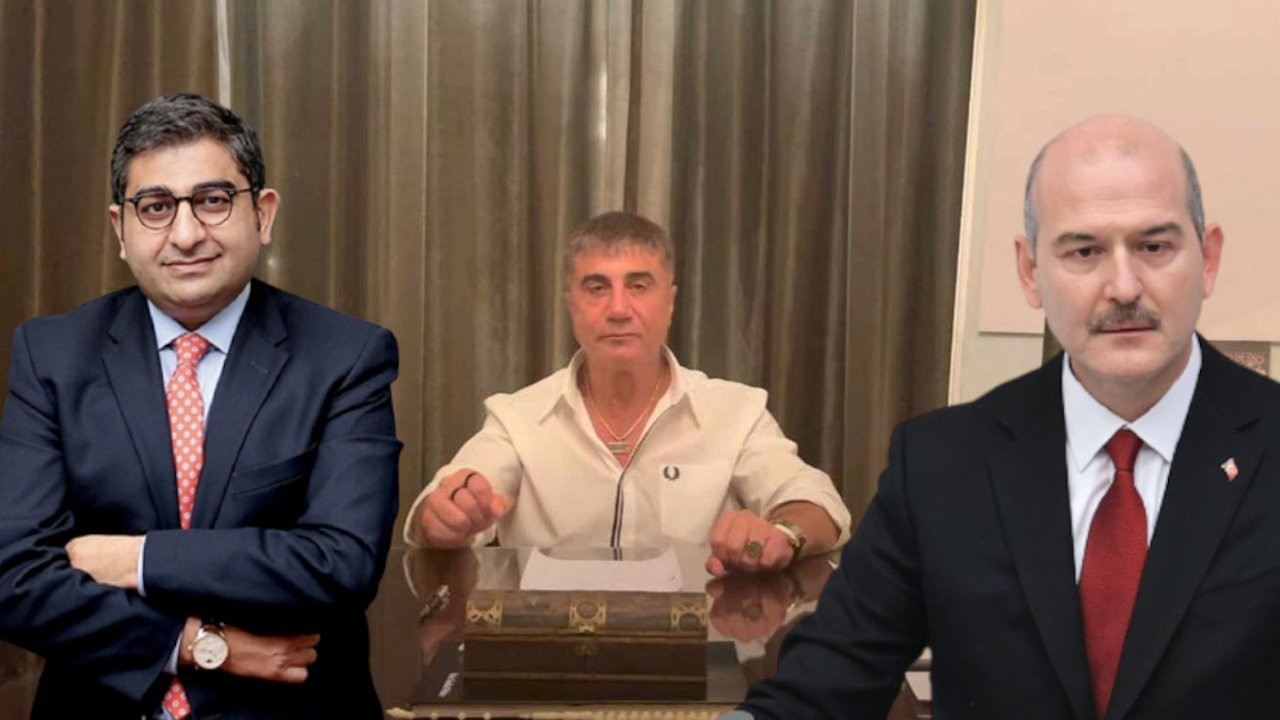Turkey, US 'in extradition fight for shady Turkish business tycoon'
Turkey and the U.S. both seek the extradition of shady business tycoon Sezgin Baran Korkmaz from Vienna and the struggle could hurt the already-strained ties between Ankara and Washington, The Wall Street Journal reported.
Duvar English
Turkey and the United States are in a fight for the extradition of shady business tycoon Sezgin Baran Korkmaz from Vienna, who is currently under arrest awaiting his fate in the extradition contest.
Both countries want him on charges of laundering proceeds from a U.S. renewable-energy tax credit fraud, and where he winds up could affect already strained relations between the U.S. and a NATO ally, The Wall Street Journal reported.
Korkmaz was arrested in Austria in June at the request of the U.S. Department of Justice, which accuses him of laundering more than $133 million in tax fraud proceeds through a network of businesses he controls in Turkey. Prosecutors in Turkey want him in connection with the same alleged scheme and have launched extradition proceedings against him in an Austrian court, which ordered him to be held until Sept. 22.
Korkmaz’s prosecution in a U.S. courtroom, and the allegations of corruption among the Turkish government that could spill out, would hinder Turkish President Recep Tayyip Erdoğan's efforts to repair his government’s reputation overseas, according to opposition lawmakers in Ankara and analysts in the U.S. and Turkey.
Erdoğan is already contending with a struggling economy, slipping poll numbers, and corruption allegations against senior government officials. The Turkish government is also battling to repair an international image damaged by erratic economic policies and a domestic political clampdown.
An extradition fight could also hurt ties between the Turkish and U.S. governments, which are already strained over human rights, Turkey’s purchase of a Russian air-defense system, clashing interests in the conflict in Syria, and U.S. President Joe Biden’s decision in April to recognize the Armenian genocide.
Korkmaz denies charges
Korkmaz denies the U.S. and Turkish government’s charges against him, his lawyer, Murat Volkan Dülger, said, adding that Korkmaz viewed the transfers of funds from his alleged co-conspirators in the U.S. as legitimate business transactions.
The tycoon is accused of joining a scheme started by the brothers Jacob and Isaiah Kingston, members of a polygamous breakaway Mormon group based in Utah, according to the federal indictment, other court filings and interviews with lawyers familiar with the case.
Through a business called Washakie Renewable Energy LLC, the Kingston brothers made a billion dollars in fraudulent claims for an IRS tax-credit program designed to encourage renewable fuel use, prosecutors said. In court filings, prosecutors said the brothers falsely claimed they had produced and sold biofuels in transactions that qualified for the tax credits, but instead sent tanks of water or diluted gasoline to co-conspirators, among other measures. They eventually pocketed about $470 million from the scheme, prosecutors said.
The Kingston brothers have pleaded guilty to crimes related to the fraud, including conspiracy to commit mail fraud and aiding and assisting in the filing of false claims with the IRS. They are serving sentences in federal prison.
To launder the proceeds, the brothers engaged Lev Dermen, an Armenian immigrant with businesses in the U.S. and Turkey, court filings allege.
Dermen and Korkmaz met in Istanbul in 2011, and the following year, they went into business together in Turkey, according to court filings. In 2013, Korkmaz traveled to Las Vegas for a party for one of Dermen’s relatives and while there first met Jacob Kingston, court records showed. Dermen was found guilty by a Utah jury of conspiracy to commit mail fraud, conspiracy to commit money laundering, money laundering and other charges. He is in federal prison, according to his lawyer.
Korkmaz, an ethnic Kurd with little formal education, built a business empire investing in energy and heat insulation companies, people familiar with Korkmaz said. He was the part owner from 2011 to 2012 of a pharmaceutical company of which he is still the general manager, and was also the general manager of a glass company until 2016, according to financial documents reviewed by The Wall Street Journal.
Korkmaz has ties to people at the top of the Turkish government and knows Erdoğan's son-in-law Berat Albayrak well, according to two people familiar with their relationship. Until late last year, Albayrak was Turkey’s minister of treasury and finance.
One of Erdoğan's aides, Korkmaz Karaca, publicly acknowledged that he used a luxury car lent to him for three months for free by Korkmaz’s company. “I made a mistake, I wish I paid for it. But can a man not use his friend’s car?” Karaca said in an interview with a columnist from Turkey’s Sözcü newspaper.
Turkish Interior Minister Süleyman Soylu used one of Korkmaz’s planes during a 2017 referendum campaign, according to a statement from the interior ministry. The ministry said that Soylu’s own private insurance company paid $44,000 to rent the plane, offering an invoice as proof, and said that he didn’t use a government plane during the campaign due to ethical concerns.
Soylu accused of tipping off Korkmaz
Between March 2013 and December 2020, according to prosecutors, Korkmaz transferred $133 million in proceeds from the renewable energy fraud to bank accounts he controlled in Turkey and Luxembourg.
Some of the proceeds he used to acquire the now-defunct Turkish airline Borajet in 2017, hotels in Turkey and Switzerland, a yacht named the Queen Anne, and a villa and apartment on the Bosporus strait in Istanbul, prosecutors said.
“This was a case where some good, old-fashioned American fraudsters were defrauded” by Korkmaz, said John Huber, a former federal prosecutor involved in the Kingston case, referring to the allegation that Korkmaz spent the Kingstons’ money instead of sending it back to them.
Convicted Turkish crime boss Sedat Peker accused Soylu of tipping off Korkmaz to the criminal investigation against him. Peker made the claim as a part of a series of widely viewed YouTube videos recorded from a hotel room in Dubai in which he has made unverified allegations of corruption against top Turkish officials.
Asked about Peker’s claims, Dülger said, “I don’t think so.”

 Infamous Turkish tycoon to remain imprisoned in AustriaDiplomacy
Infamous Turkish tycoon to remain imprisoned in AustriaDiplomacy Another indictment against infamous Turkish tycoon revealed in USDiplomacy
Another indictment against infamous Turkish tycoon revealed in USDiplomacy Turkish mafia leader Peker claims Minister Soylu warned shady tycoon sought by Ankara to flee TurkeyPolitics
Turkish mafia leader Peker claims Minister Soylu warned shady tycoon sought by Ankara to flee TurkeyPolitics